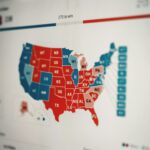Reads of the Week: War in Syria, Tobacco Regulation, and Stifled Urban Growth
Each week, we’ll be featuring opinion pieces from the alumni and current participants of AFF’s Writing Fellows Program. A few highlights from the past week are below. Do you dream of having bylines like these? Learn more about how the Writing Fellows Program can help boost your writing career!
Why Is America Still In Syria? by Matthew Petti (Fall 2019) in Reason
In September 2020, a Syrian rebel group called the Hamza Division showed up in an unexpected place: the disputed post-Soviet territory of Nagorno-Karabakh, 600 miles from Aleppo. The rebels had been offered $1,500 per month each to fight for Azerbaijan against Armenia in the two countries’ border war over that disputed territory, several different news outlets reported.
Sayf Bulad, commander of the Hamza Division, has an interesting past. He served as a commander in a CIA-backed rebel group, appeared in pro–Islamic State propaganda, trained with the U.S. military, and fought other U.S.-backed rebel groups in Syria on behalf of the Turkish government. Now he was helping two former Soviet republics fight each other for money…
New Year, New Regulations, and Big Government’s Attempts to Block Tobacco Harm Reduction by Lindsey Stroud (Spring 2019) in Inside Sources
A new year and new resolutions. In 2021, many Americans will attempt to lose the weight gained after weeks – and months – of stay-at-home orders. Some may have been inclined to reduce their Zoom time, but for many smokers the beginning of a new year marks a resolution to quit smoking.
This particular resolution is difficult. A 2016 study from the UK’s Royal Society for Public Health (RSPH) reported that “quitting smoking is the most difficult resolution to keep,” and that among Brits who reported making a resolution to quit smoking, “41% kept this for a month, [and] 13% [stuck] with it after a year.” A study from the University of Scranton found “only 8 percent of people who make resolutions [to quit smoking] meet their goal”…
The Bootlegger And Baptist Coalition To Restrict Urban Growth by Nolan Gray (Fall 2015) in the American Conservative
Earlier this month, Jacob Anbinder made a splash with a piece in The Atlantic charting the understudied rise of the anti-growth coalition which now thwarts growth in our most productive cities. As Anbinder recounts, the modern NIMBY coalition—a witch’s brew of incumbent property owners, preservationists, environmentalists, and leftists—is an anachronism, a holdover from an age of urban renewal throwing up urban freeways and “growth machines” leveling neighborhoods. In high-cost cities from Boston to Los Angeles, some version of this NIMBY coalition dictates development policy. But what explains their effectiveness?
One way to approach this question is through a concept that economists call “bootleggers and Baptists.” Originally coined by economist Bruce Yandle, the concept attempts to explain how bad rules emerge and persist. As told by Yandle, political coalitions can often produce strange bedfellows. Support for any given regulation might come from groups that earnestly believe that a particular policy is the right thing to do. But an equally important—and wholly distinct—source of support may be those with a financial stake in the regulation. In the messy world of politics, the coalitions that form behind policies may thus have nothing in common…




